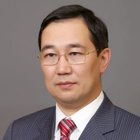Aisen Nikolayev reported to the President that the industrial growth in the republic in the five months of 2024 stood at 9.7 percent compared to last year, and the GRP grew by 5.6 percent. Coal production is growing whereas gold, diamond, oil and gas production rates are stable. In the first quarter, investments grew by 4.5 percent in comparable prices. The main investments are in the extractive industries. These include investments both from large state-owned companies such as Gazprom, Rosneft, and private companies Elgaugol, Nordgold for gold, and Polymetal. According to Aisen Nikolayev, all of this resulted in the confident execution of the last year’s budget: 269 billion rubles of the republic’s consolidated budget, tax and non-tax revenues. Of course, this ensures good results in the social sphere and in people’s lives.
Aisen Nikolayev also said that, unfortunately, the unemployment rate remained significant in the republic, yet it is still at its historical low of 5.4 percent.
See also
A programme was developed to fight poverty in the next five years, aiming at halving poverty in the republic and reducing it by three times among large families.
Vladimir Putin noted that the republic’s demographic indicators were better than the national average.
Aisen Nikolayev also told the President about the improvement of social infrastructure: 329 facilities were commissioned in 2018–2023. This year, 76 facilities are to be launched, including a interuniversity campus, the Arctic Centre for Epos and Arts, and the State Philharmonic Hall. The Point of the Future educational complex is a unique private project which is being built entirely at the expense of Elgaugol a private investor.
The head of the republic also noted that, like elsewhere in the country, Yakutia understands that victory in the special military operation is today’s priority. A total of about 9.5 billion rubles were allocated for support measures for military personnel and their family members.
He also discussed assistance to the Donetsk People’s Republic, including the establishment of an IT centre and the opening of a subsidiary of a Yakutian hospital. The specialists from the hospital have already performed over 2,000 operations and provided 10,000 consultations. Yakutian doctors also visit the republic to train local personnel and work there. As an example, Aisen Nikolayev mentioned that Yakutian surgeons had restored the eyesight of a woman who had been blind for 20 years.
Vladimir Putin thanked Aisen Nikolayev for providing this assistance to the Donetsk People’s Republic. He emphasised that people should recognise that, in addition to emotional and cultural aspects, their reunification with Russia leads to an improvement in their standards of living and well-being.
The discussion also focused on the construction of another ALROSA mine, which will replace a facility that was destroyed in an industrial accident in 2017. Additionally, they talked about the construction of the Novolenskaya Thermal Power Plant for East Siberia and the Eastern Operating Domain, as well as the Kyuchussky cluster. In the Arctic, a gold mining project will be launched and the world’s first low-capacity (10 megawatts) twin-reactor nuclear power plant will also be built. The cluster will create opportunities for the development of gold, tin and other deposits. They also mentioned the Elginsky coal project, which is transforming southern Yakutia and northern areas of the Khabarovsk Territory. Several years ago, local coal output was insignificant, but now it has expanded to over 30 million tonnes. Seven factories with a total capacity of 28 million tonnes have been built. An airport has been completed, and a railway is under construction, with the first trial runs scheduled for later this year. Next year, coal batches will be delivered to a deep-water port, which is currently under construction in the Khabarovsk Territory. Russia has now become the world’s largest coking coal producer.
Regarding the low-capacity nuclear power plant, Aisen Nikolayev said that it incorporates Soviet-era engineering solutions that meet to modern safety requirements. These nuclear power plants are unique due to their low heat and electric capacity. They are particularly suitable for small communities like Tiksi, Ust-Luga, as well as any northern town. Their commercial production would revolutionise work in remote territories, which currently require large fuel delivery expenditures.
Aisen Nikolayev also discussed the development of the transport system, including airports, creative industries and the creation of a multi-role and full-cycle film studio.
The Head of the Republic mentioned two problems: the need for hospitals treating infectious diseases and the conversion of the Neryumgrinskaya Thermal Power Plant to natural gas. He added that these matters are being discussed with the Government.




